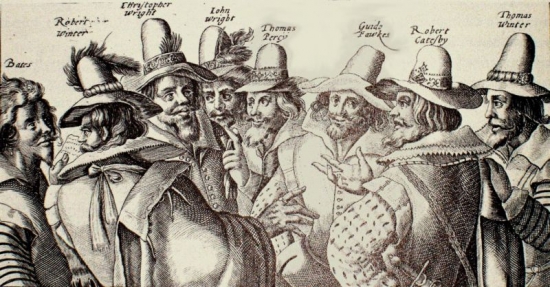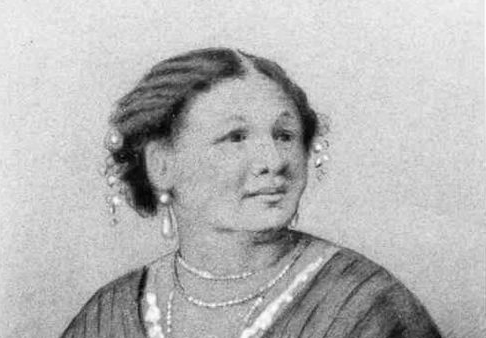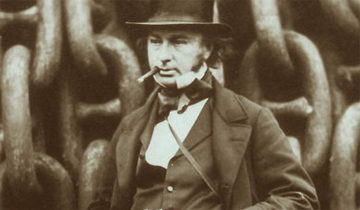1.1 Introduction: Why teach emotive and controversial history in the Foundation Stage and Key Stage 1?
1. Children are surrounded by puzzling and sensitive occurrences all the time and consequently it is important that teachers support children as they try to make sense of them. Teachers may play important roles in encouraging children to question stereotypes and to recognise alternative viewpoints. History provides opportunities for children to engage with these issues as they hear stories about different people in the past. Research suggests that from an early age children begin to identify with particular communities and may make prejudiced statements (Connolly: 2002). Extending children's awareness of different viewpoints through history may contribute to children's developing awareness of different life styles and values.
2. The development of children's understanding of emotive and controversial history during the Foundation and Key Stage 1 is closely linked with both their social and cognitive development. Early years practitioners work hard to encourage children to develop positive social relationships; they foster the understanding of rules and behaviours; provide models for dealing with conflict and disagreement and support children in their interactions with each other and within broader social groups. Children are beginning to learn their place in the world; their own unique identity and the identities which they share with the rest of their group. In effect, children are experiencing in their daily lives many of the circumstances which underpin the controversial nature of history.
3. The processes of learning about controversial and emotive history involve active participation on behalf of learners. - Asking questions - making observations - explaining and drawing conclusions - exploring alternative points of view are all key skills which support children's cognitive development. The role of language is central in this development and history provides many opportunities for children to communicate their thoughts and feelings; ask and answer questions and to use talk to clarify information; reflect and report ideas; persuade and explain.
4. Teaching history provides real opportunities for responding creatively to the themes and principles of the Early Years Foundation Stage Framework. The National Curriculum provides opportunities for Key Stage 1 teachers to be more creative in their curriculum planning.
Opportunities for studying emotive and controversial history in the Early Years Foundation Stage Framework and the History National Curriculum at Key Stage 1:
a) 'changes within living memory'
Learning about different lifestyles is an important starting point for developing children's awareness other people's values and opinions. Family histories are potentially a rich source of information for developing children's awareness of the diversity of children's experiences, as well as the similarities. Questions which enable to explore such issues include:
- Do we all celebrate birthdays in the same way?
- How are the arrivals of new babies celebrated?
- What did I learn to do before I came to school?
Sharing family photographs and family stories also provide opportunities for children to explore similarities and differences between their experiences and to begin to explain them. There are many opportunities for children to describe their feelings as they talk about their own histories and these are important starting points for developing an appreciation of other people.
Studying personal and family histories may require sensitive handling, taking into account children's different backgrounds and experiences.
b) Events beyond living memory that are significant nationally or globally
As children learn about people and ways of life in the past they extend their awareness that there are alternative life styles and beliefs which might contrast with their own. Teachers may develop opportunities for extending children's awareness further by drawing children's attention to the diversity of society in the past. In studying past societies consideration needs to be given to exploring differences in the experiences of rich and poor people; people from different cultural backgrounds and men, women and children. Opportunities for engaging with challenging issues may be created by asking such questions as;
* Why are there differences in life styles?
* How did these differences effect people's lives?
* Was life fair for all people?
* How might lives have been improved?
As children learn about changes which occur in different societies, teachers may raise questions such as:
* Who benefited from these changes and in what ways?
* Did all people necessarily benefit?
Within existing schemes of work, there are opportunities for children to explore social diversity and its effects. For example, in the scheme of work, ‘ How are our toys different from those in the past?' teachers can raise questions such as;
- Did everyone have toys like this?
- If not, why not?
- How were these toys made?
- Who made them?
When children study, ‘What were homes like long ago? ‘ teachers may encourage children to think about the differences between rich and poor people's homes and encourage reflection on the disparity in life styles. Children could be encouraged to explore questions such as if you were poor - what would your life be like and how might you try to make it better?
Opportunities for exploring the controversial nature of change may be developed when children study their own locality; who lives there now and how has the community changed? Change is controversial and looking at different people's experiences may enable children to appreciate different perspectives and points of view.
c) The lives of significant individuals in the past who have contributed to national and international achievements'
Learning about significant people and events may address emotive and controversial issues, although currently the selection of individuals and events by schools is often very limited. A more judicious selection which draws on men, women and children from a range of backgrounds and cultures would be more useful and teachers need to take into accounty. Some should be used to compare aspects of life in different periods.

Focused enquiries which raise young children's awareness of controversy may be incorporated into existing curriculum plans, with careful planning. For example, in learning about the Gunpowder Plot, children could explore motivation and ask:
- Were Guy Fawkes' attempts to blow up parliament justified?
- Should we celebrate Guy Fawkes' life?
- What other ways may conflict be resolved?
Questioning why Mary Seacole should be remembered encourages children to make value judgements concerning her contribution to society and to explore how values and significance change over time, since it is only recently that her life story has been studied widely.

Questions might include;
- Why did British people remember Florence Nightingale but forget Mary Seacole?
- How should we remember Mary Seacole?
Children are invited to explore Brunel's achievements, but teachers could also draw children's attention to the human cost of building the railways in terms of lives lost and also the destruction of the landscape.

- Did Brunel's achievements constitute changes for the better?
Certain topics such as remembrance may be emotive for many families. Teachers are reminded of the strong links between history and spiritual dimensions.
References
Connolly, P., Smith, A., and Kelly, B. (2002) Too young to notice? The cultural and political awareness of 3-6 year olds in Northern Ireland. Belfast, Community Relations Council.
DfES EYFS Early Years Foundation Stage
DfEE and QCA ( 1999) The National Curriculum. Handbook for primary teachers in England. Key Stages 1 and 2. London, QCA.
DfEE and QCA (1998) A Scheme of Work for Key Stages 1 and 2. History. London, QCA.
DfES(2004) Every Child Matters: Next steps for children. Nottingham. DfES.
QCA (2007) Primary History Teacher Assessment Activities, London, QCA

